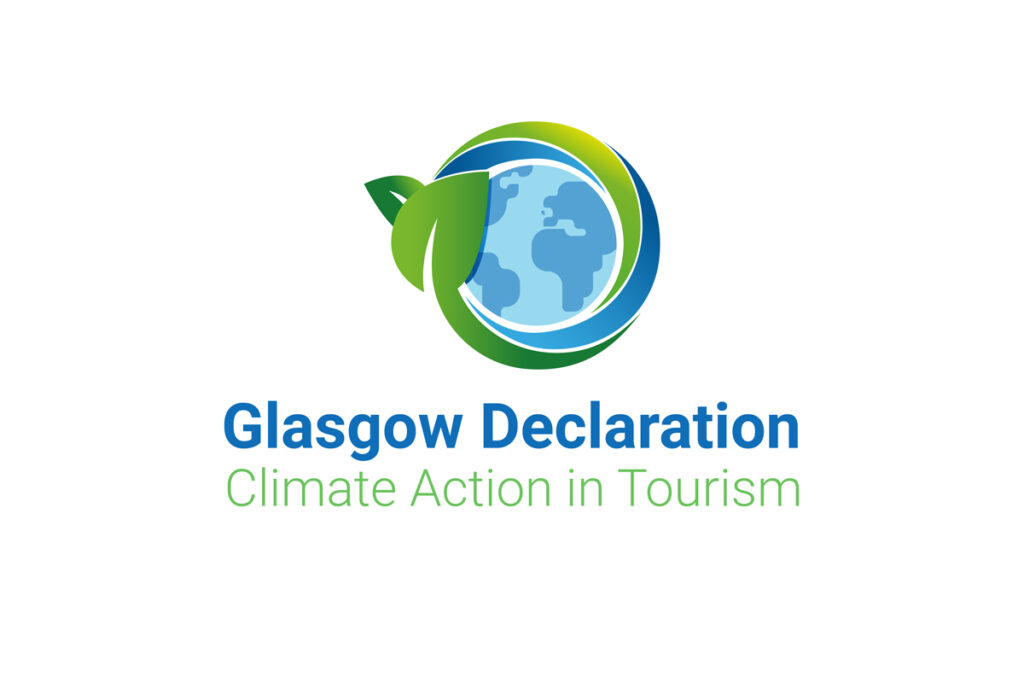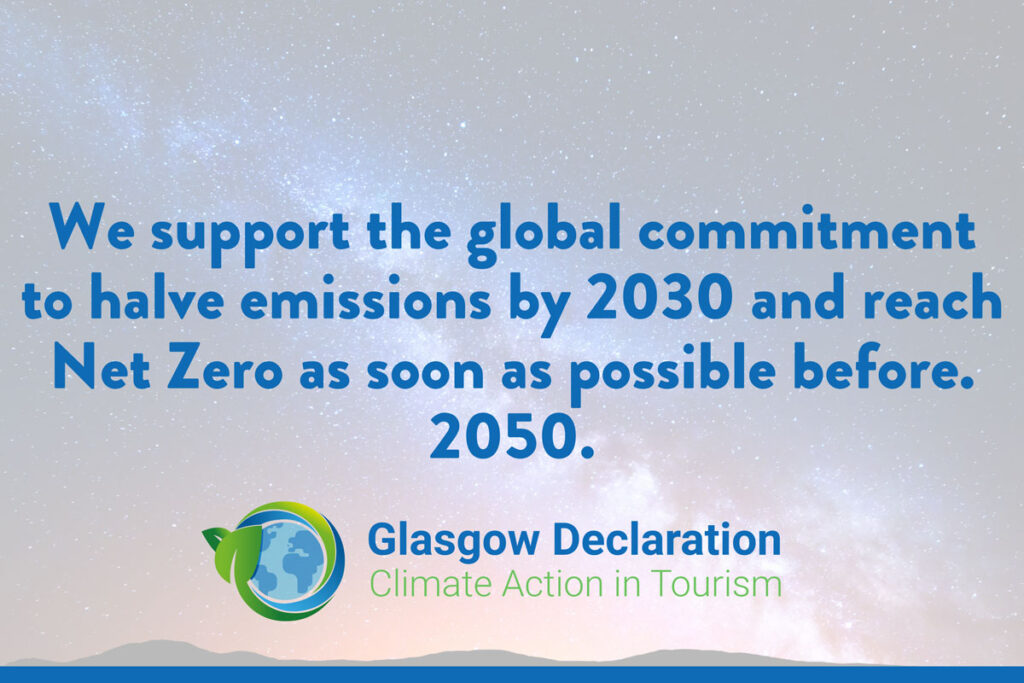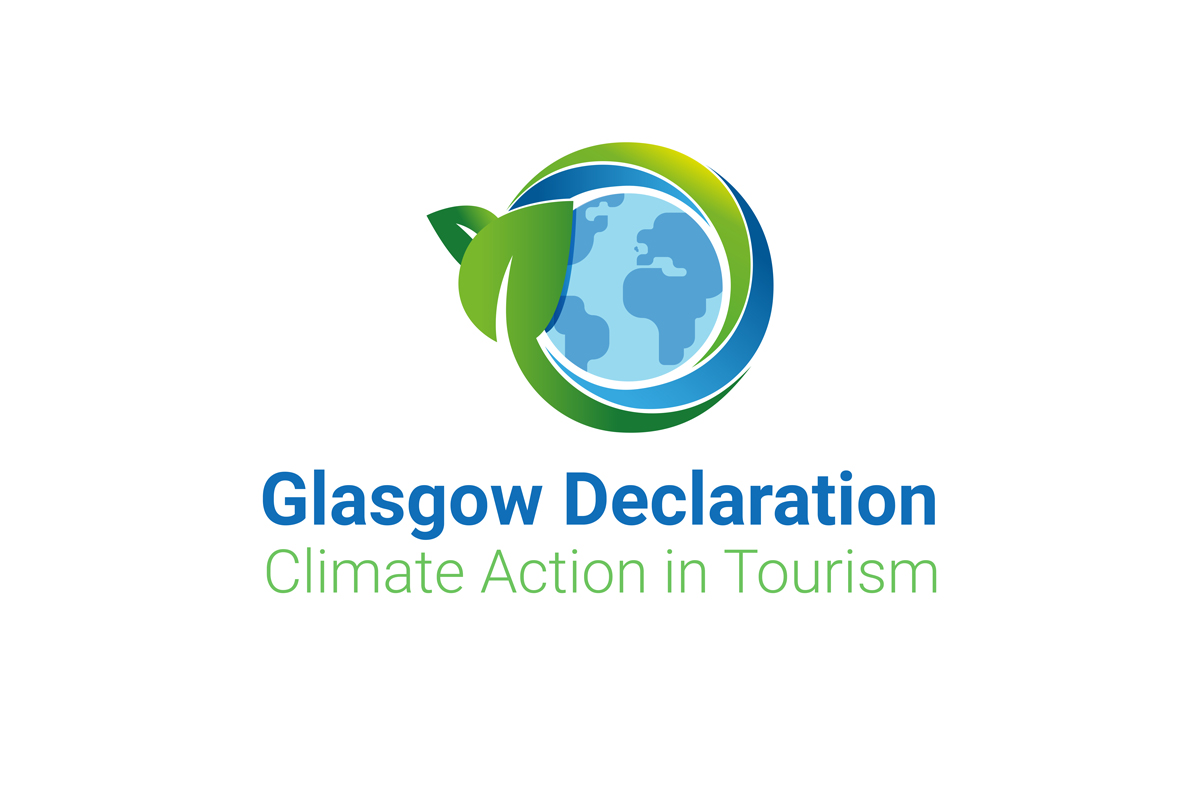The UIAA – International Climbing and Mountaineering Federation – announced today that it has become a signatory and launch partner of the Glasgow Declaration on Climate Action in Tourism.
The Glasgow Declaration on Climate Action in Tourism unites travel and tourism behind a common set of pathways for climate action, aligning the sector with global commitments and catalysing collaborative solutions to the many challenges facing businesses and destinations globally. The Glasgow Declaration encourages the acceleration of climate action in tourism by securing commitments to reduce emissions in tourism by at least 50% over the next decade and achieve Net Zero as soon as possible before 2050.
The Declaration was officially launched at the UN Climate Change Conference (COP26) on 4 November 2021. The information about the launch event is available here.
“This is a significant day for the UIAA and its work in sustainability on behalf of the climbing community. We are delighted to have become a signatory and launch partner of this landmark agreement,” reflected UIAA President Peter Muir.

As a signatory of the Glasgow Declaration on Climate Action in Tourism, the UIAA has committed to aligning its actions with the latest scientific recommendations, so as to ensure its approach remains consistent with a rise of no more than 1.5°C above pre-industrial levels by 2100. It also has agreed to deliver or update climate action plans within 12 months, align plans with the five pathways of the Declaration (Measure, Decarbonise, Regenerate, Collaborate, Finance), report publicly on an annual basis, and work in a collaborative spirit, sharing good practices and solutions, and disseminating information.
The Glasgow Declaration on Climate Action in Tourism brings together the latest research and global expertise to galvanise climate action. It will be hosted within the One Planet Sustainable Tourism Programme’s website, supported by Recommended Actions for tourism stakeholders across the world to consider as part of their action planning, alongside other resources.
As the declaration states: “A just transition to Net Zero before 2050 will only be possible if tourism’s recovery accelerates the adoption of sustainable consumption and production, and redefines our future success to consider not only economic value but rather the regeneration of ecosystems, biodiversity and communities.”

The need for a globally consistent approach for climate action in tourism has been made clear, notably through research into CO2 emissions carried out by UNWTO/ITF and released at the UNFCCC COP25 in December 2019. This showed that transport-related emissions from tourism were forecast to increase by 25% by 2030 from 2016 levels, against the current ambition scenario.
In 2020, the One Planet Vision for a responsible recovery of the tourism sector was adopted with the aim of emerging from the COVID-19 crisis both stronger and more sustainable. Climate action is a central element of the Vision, which calls for monitoring and reporting CO2 emissions from tourism, promoting the introduction of science-based targets, accelerating the decarbonisation of tourism operations, and engaging the tourism sector in carbon removal.
About the One Planet network Sustainable Tourism Programme
The One Planet Sustainable Tourism Programme has the overall objective to enhance the sustainable development impacts of the tourism sector by 2030, by developing, promoting and scaling up sustainable consumption and production practices that boost the efficient use of natural resources while producing less waste and addressing the challenges of climate change, loss of biodiversity and pollution. The Sustainable Tourism Programme is part of the One Planet network, a multi-stakeholder partnership to implement SDG 12 on Sustainable Consumption and Production.
https://www.oneplanetnetwork.org/programmes/sustainable-tourism
For further details about the UIAA’s activities at COP26 please click here.



